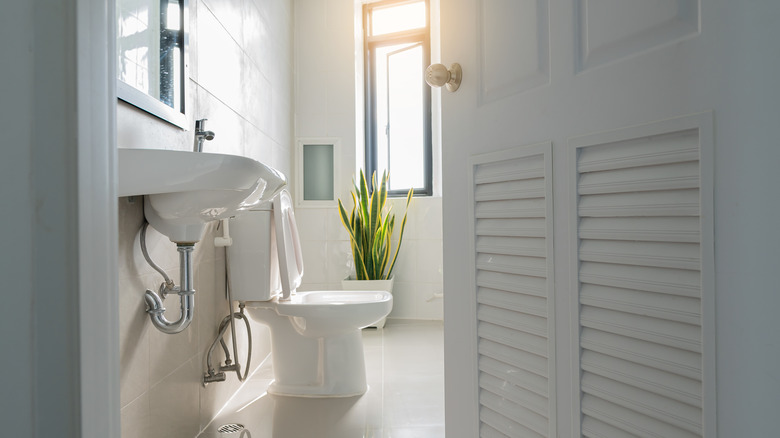How To Eliminate Septic Tank Odor
We may receive a commission on purchases made from links.
When everything's working correctly, you shouldn't smell your septic tank. If you notice an odor either inside your home or outside near the septic tank and leach field, you likely have a problem you need to fix. Some septic tank problems are relatively easy to fix, while others are more involved and costly.
Add Baking Soda
Add Baking Soda
One option for general odor issues is a baking soda septic tank odor solution. Simply pour a cup of baking soda down one of your toilets each week. This helps maintain an ideal pH level inside the septic tank to support the microorganisms that help break down the contents of the tank.
Avoid flushing anything else down the toilets other than human waste and septic-friendly toilet paper. You'll often see septic tank additives that claim to support the helpful bacteria, but there's little evidence to show that those additives work. They might disrupt the balance in the septic tank, so it's best to skip them.
Look for Indoor Problems
Look for Indoor Problems
Issues with the plumbing components inside your home can cause bad odors to drift in from the septic tank. The P-traps in your sinks, tubs, and drains need to have water in them to keep bad odors from coming back into your home. If you haven't used a plumbing fixture in a while or if there's damage to the P-trap, it might be empty. In plumbing fixtures you don't use very often, run water every few weeks to make sure the P-trap doesn't dry out.
Another issue could be with your toilet's wax ring if you mainly notice the smell in that area. If it dries out or if the toilet shifts too much, it won't provide a secure seal, and it could let odors into your bathroom. You can replace the wax ring if you think this is the issue.
Check the Tank Level
Check the Tank Level
Part of septic tank care is having the tank pumped regularly. It usually needs to happen every three to five years, but you might need to pump it more often if your usage makes it fill up quicker. If your tank is too full, it can get clogged and cause unpleasant odors inside and outside your home. Having it pumped should remedy the issue.
Clear the Plumbing Vent Stack
Clear the Plumbing Vent Stack
Your home has a plumbing vent system that helps balance the pressure within your plumbing, which keeps waste flowing properly. If the vent stack on your roof is clogged or if the venting system isn't working properly, it can throw off the balance and allow bad smells to enter your home.
If you feel comfortable climbing on the roof, inspect the vent stack to see if it's clogged with leaves, an animal nest, or other debris. Clean the debris out of the way. In the winter, snow or ice can block the vent stack and cause issues. Don't climb on the roof during slippery conditions. If you don't feel comfortable getting on the roof or if it's not safe to do so, contact a plumber to inspect the vent stack for you.
Inspect the Leach Field
Inspect the Leach Field
If the stink is mostly noticeable outdoors, there can also be issues with your septic tank or the leach field that can cause odors. The pipes could be leaking, or they could be blocked by tree roots. While you can't see the pipes from above ground, you can look for signs of an issue above your tank and in the leach field. Look for signs including:
- Soggy soil.
- Water pooling on top of the grass.
- Very green grass that's growing better than the rest of the yard.
If you notice anything different about the septic tank area, call a septic tank company to inspect it. Professionals can check for issues with the pipes and other components to determine if repairs need to be made.
